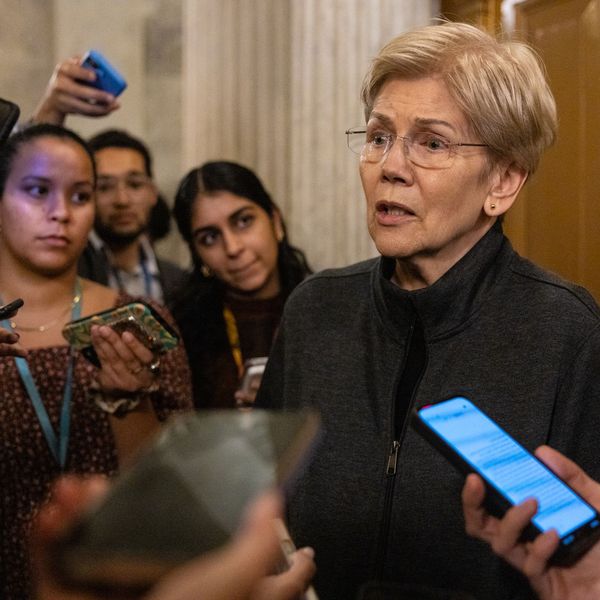Any remaining doubt that a for-profit, private monopoly of our
nation's health care system is a dangerous idea should be removed by
the recent news that Wall Street plans to reap profits from people not
living to collect their life insurance policies.
False accusations of plans for government "death panels" was ironic
enough, given that private insurance companies have long entrenched
real death panels deep within their profit-driven bureaucracy. One woman from Tennessee
told a frightening story of how a hospital wouldn't give her husband a
CAT scan because the hospital had cut a deal to not use the machine too
often, which would cost the insurance company too much money. The
financial interest of the insurance company was to provide less care to
make more profit.
Now come "death bonds" to take things one step further. Having
already ruined the mortgage market and plunged more families into
foreclosure than ever before, Wall Street needs a new way to make
money. And profiting off the sick and elderly has worked so well for
insurance companies, why not expand the sector?
People with frail health who have life insurance have the option of
selling their policies before they die for a lesser amount than the
full value. Say you have $500,000 in life insurance. Depending on your
life expectancy at the time you sell your policy, you might be able to
sell it for, say, $250,000 in cash. Whoever bought it is taking a
gamble. According to the New York Times:
The earlier the policyholder dies, the bigger the return --
though if people live longer than expected, investors could get poor
returns or even lose money.
Now Wall Street's latest scam is to bundle life insurance policies
purchased from the sick and the elderly into securitized death bonds
and funds. The earlier the group of policyholders die, the bigger the
return.
Insurance companies already had a financial incentive to deny care
and increase profits. Now Wall Street banks are adding another
incentive -- the sooner people die, the sooner death bond prices rise.
And since it's really the same super-rich investors benefiting from
both enterprises, the grand conclusion is simple -- poor health is good
for profits. If the opponents of health care reform have their way, the
quality of our health care will only get worse.
The stupidity of designing a health care system that gives a
monopoly to private companies that puts profits ahead of patients is so
self-evident that the only way to preserve this twisted system as-is is
to attack and undermine any reasonable alternative. And so opponents of
reform have tried to convince us that a publicly funded insurance
program that puts the public and patients first is a bad idea while a
big-money private monopoly that puts profits first is somehow virtuous
and in the best interest of our nation. (Yet another example of the
contortions required to make these warped arguments is columnist Charles Krauthammer arguing that preventative care is not cost effective and therefore not in the public's best interest!)
From health care to education to war, private companies have spent
billions of dollars in advertising and messaging to try and convince us
that private industry is better at providing public services than, um,
the public is. In fact, the health care industry is spending $1.4
million per day trying to kill a public health insurance option. They
have to fight so hard because the truth is so obvious -- public
institutions are inherently better at looking out for public needs.
Private health care will drop you if they can't make a profit off you,
kill you if your care is costing to much. Public health insurance wants
you to live because public health insurance cares about the American
public -- all of us.
It's fitting that Congress returns to work on health care reform
legislation just after Labor Day, which commemorates hard working
Americans rising up to protest the profit-driven abuses of factories at
the turn of the century. Everything from the 40 hour work week to
restrictions on lead paint to seat belts came from the recognition
that, left to its own devices, big, for-profit corporations would never
put the health and safety needs of the American public before their own
private profit. We continue to spend more on health care than any
industrialized nation and yet have worse health outcomes on almost
every measure. If the private insurance companies are so confident they
can care for us better than publicly-funded insurance, what are they
worried about? The public option makes them nervous because they know
it will care for us better while cutting into their obscene profits.
When securitized bundles of subprime mortgages went sour, people
lost their homes. When death bonds and the private insurance monopoly
reach fruition, even more people will lose their lives. That, in
addition to the piles of money we're already pouring down the insurance
monopoly drain, is a tremendous price to pay to preserve a false
ideology of private market supremacy in matters of the public interest.


